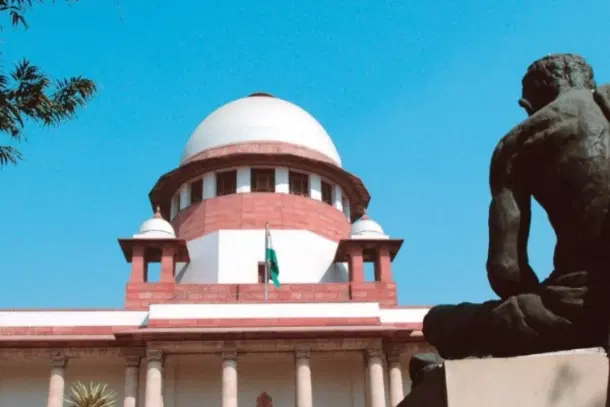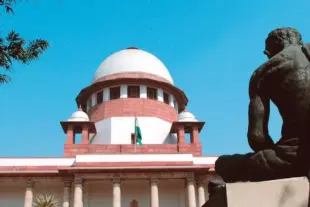News Brief
Supreme Court Rules Against Midway Changes in Recruitment Criteria for Government Jobs
Arjun Brij
Nov 07, 2024, 03:21 PM | Updated 03:21 PM IST
Save & read from anywhere!
Bookmark stories for easy access on any device or the Swarajya app.


In a significant decision, the Supreme Court of India ruled that eligibility criteria or rules governing recruitment for government jobs cannot be altered midway through the selection process unless the existing rules specifically allow it. This judgment was delivered by a five-judge Constitution Bench led by Chief Justice DY Chandrachud, with Justices Hrishikesh Roy, PS Narasimha, Pankaj Mithal, and Manoj Misra concurring.
The case, Tej Prakash Pathak v. Rajasthan High Court, centered on whether the rules of the “game”—in this case, the recruitment process—can be changed after the process has begun. The petitioners argued that altering eligibility requirements after the recruitment process was initiated is fundamentally unfair to candidates. The Court's ruling upheld a previous judgment from 2008, K Manjusree vs State of Andhra Pradesh, which stated that changing recruitment criteria mid-process is impermissible.
The Court further clarified that K Manjusree is "good law" and cannot be disregarded simply because it did not consider the Supreme Court’s 1973 ruling in State of Haryana vs Subash Chander Marwaha. In the Marwaha case, the Court held that candidates who meet minimum eligibility marks do not have an absolute right to selection, as the government may set higher standards for public interest.
This verdict follows a long-running legal dispute over the recruitment process for translator posts in the Rajasthan High Court. In the initial notification, candidates were informed that selection would involve a written exam followed by an interview, without any additional qualification criteria. However, during the process, the Chief Justice of the Rajasthan High Court imposed a new requirement that candidates must secure a minimum of 75% marks. This change, not originally stated in the recruitment notice, meant that only three out of twenty-one candidates qualified, excluding the remaining applicants. The aggrieved candidates argued that this was an unfair alteration of the selection criteria.
The candidates took their case to the Rajasthan High Court, where it was dismissed in 2010, prompting them to approach the Supreme Court. They relied on the K Manjusree ruling, which argued that mid-process rule changes are legally impermissible. In a preliminary 2023 hearing, a Supreme Court bench, led by then-Justice RM Lodha, acknowledged that if the Manjusree precedent was strictly applied, the Rajasthan High Court would have to select thirteen candidates instead of three. However, the bench expressed reservations about applying this precedent without considering broader public interest and the need for efficient administration.
The Constitution Bench’s final ruling laid out five key conclusions:
The recruitment process spans from the call for applications to the final filling of vacancies.
Eligibility criteria cannot be changed once the recruitment process has begun unless allowed by the original rules.
Recruitment rules must meet constitutional standards of equality (Article 14) and non-discrimination in public employment (Article 16).
A candidate’s placement on a select list does not guarantee employment.
The K Manjusree judgment remains valid and is not undermined by the Marwaha ruling.
This judgment provides clarity and stability to the public recruitment process, underscoring that fair and predictable procedures are essential for candidates and upholding the principles of equality and transparency in public employment.
Arjun Brij is an Editorial Associate at Swarajya. He tweets at @arjun_brij





